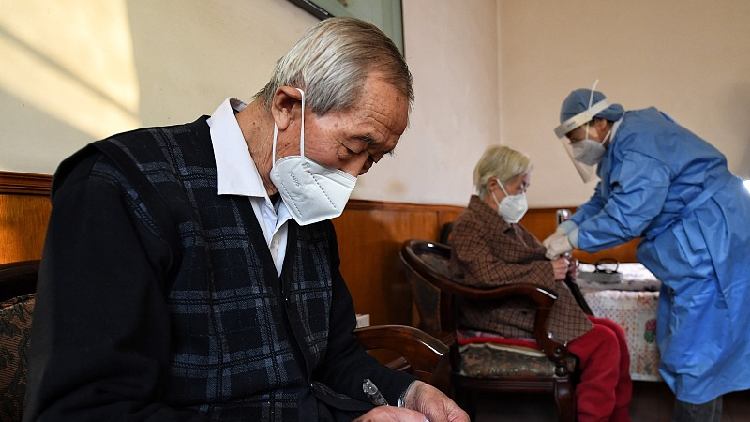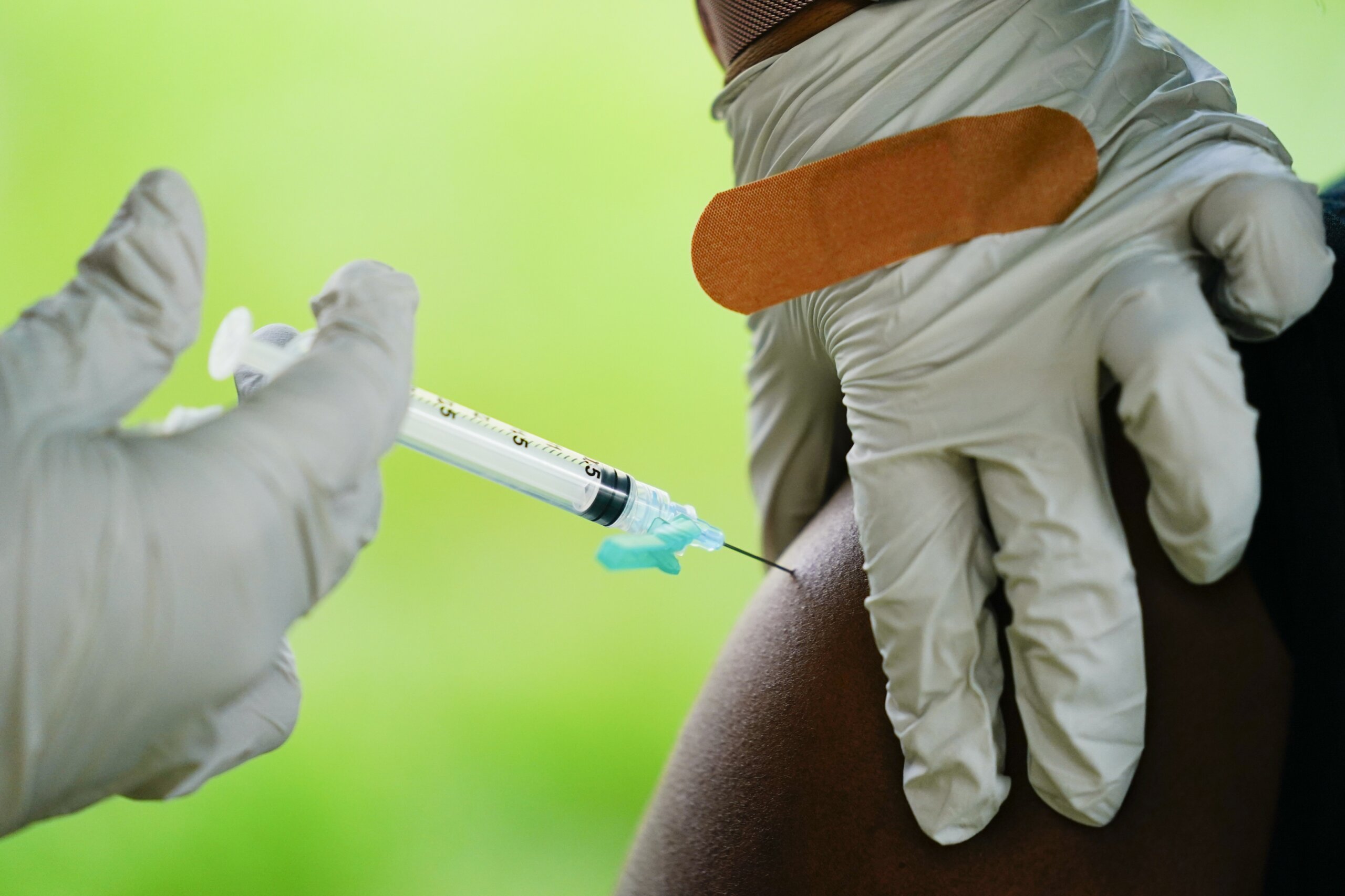COVID in California: Winter coronavirus surge likely in U.S., scientists say


A third of young people think life is ‘out of control,’ study finds
More than a third of young people surveyed in the United Kingdom feel that the COVID-19 pandemic has sent their life “spiraling out of control,” according to research published in the Guardian. The findings from the Prince’s Trust Class of COVID, which surveyed more than 2,000 people ages 16-25, found that more than 60% of said they were scared about their generation’s future, and 1 in 3 think their job prospects will never recover from the pandemic. “Their education, employment and key formative years have already suffered, leaving many feeling uncertain and scared about a future which appears to be spiraling out of their control,” said Jonathan Townsend, the charity’s U.K. chief executive. The report also showed that nearly a quarter of those surveyed missed out on having their first kiss because of COVID, and only 1 in 5 has the confidence to speak to a senior at work.
Scientists anticipate a winter wave
The U.S. will likely be another surge of COVID-19 cases this autumn and winter, said scientists who spoke to Nature. Some forecasting models have indicated the wave will not be as severe as those experienced during the first two years of the pandemic. But the experts said immune-evading strains of the omicron variant, lax attitudes and the unexpectedly slow uptake of the new bivalent vaccine boosters have increased the risk of another swell of infections proportional to this year’s BA.5 surge. “While a completely different game than it would have been in 2020 or 2021, a surge still would probably be associated with an increase in deaths and an increase in hospitalizations,” said Justin Lessler, an infectious-disease epidemiologist at the University of North Carolina at Chapel Hill who leads the COVID-19 Scenario Modelling Hub.
Long COVID runs in the family, study finds
If one member of a family suffers from the ongoing symptoms of long COVID other family members will likely experience them too, according to a new study published in the journal The Lancet. A team of scientists from the University of Freiburg studied 1,267 children and adults in Germany from 341 households with at least one individual who had a mild or asymptomatic coronavirus infection approximately one year earlier. They found that “prolonged symptoms tended to cluster within families,” but do not know why. The researchers theorize that it is possible that “shared genetic factors may predispose both parents and their children to develop prolonged symptoms following SARS-CoV-2 infection,” or that “parents’ perceptions of their own symptoms may have influenced their perception or reporting of their children’s symptoms.” Some previous studies have suggested a third factor may be at play: variants of the virus that are more likely to cause an infection with a long tail of symptoms.
CDC suspends travel advisories for lack of data
The U.S. Centers for Disease Control and Prevention has suspended its country-specific list of COVID-19 travel advisories due to a lack of data, the agency announced on Monday. “As fewer countries are testing or reporting COVID-19 cases, CDC’s ability to accurately assess the COVID-19 THN (Travel Health Notice) levels for most destinations that American travelers visit is limited,” an agency spokesperson said in a statement to CNN Travel. Going forward, the CDC will only post a notice for a country if there is concern about a coronavirus variant or other threat.
U.S. cases fall another 13%, deaths down nearly 7%
The seven-day average for new daily COVID-19 cases in the U.S. fell to 47,112 last week, down 13.1% compared to the previous seven-day average of 54,202, according to the latest update from the Centers for Disease Control and Prevention. Hospital admissions declined by 7.4% over the same period, with an average number of 3,773 daily patients compared to 4,029 the previous week. Deaths also are down by 6.7%, with an average of 344 Americans dying daily due to COVID-19. The omicron BA.5 sublineage, which made up 81.3% of the sequenced cases, continues to lose ground due to the positive growth of the sublineages such as BA.4.6 (12.8%), BF.7 (3.4%), BA.2.75 (1.4%) and BA.4 (1.1%). But Americans may be ill-prepared for any potential fall and winter surges. There was a less than 0.1 percentage point change in the number of people receiving their primary vaccination series from the previous week and a mere 1.1% increase in people receiving the updated bivalent booster doses.
CDC updates what it means to be ‘up to date’ on vaccination
With the recommendation for the updated bivalent COVID-19 boosters last month, the U.S. Centers for Disease Control and Prevention on Friday updated its vaccine recommendations to say individuals are considered to be “up to date” once they complete a COVID-19 vaccine primary series and receive the most recent booster dose recommended. “The more people who stay up to date on their vaccinations, the better chance we have of avoiding a possible surge in COVID-19 illness later this fall and winter,” the agency said, recommending people use its online tool to determine when to get booster doses.
Paxlovid significantly reduces coronavirus hospitalizations and deaths, studies confirm
Patients who are prescribed the anti-viral treatment Paxlovid are about two times less likely to be hospitalized for COVID-19 and about four times less likely to die from the coronavirus than those who might be eligible for Paxlovid but did not receive a prescription, according to a dual-team study shared by UCSF’s Bob Wachter over the weekend. The study was completed by two independent teams of clinicians and research scientists, using a data set of more than 163 million patients from 173 Epic Research organizations including over 1,000 hospitals and over 22,500 clinics, serving patients in all 50 U.S. states and Lebanon. While the data show unvaccinated individuals over 65 benefited most from the treatment, the results were positive for all eligible age groups. “In our unadjusted analysis, for patients aged 50+ who have received a complete primary series of a COVID-19 vaccination with or without a booster, there is a statistically significant difference in the hospitalization rate for those who received Paxlovid and those who didn’t. This remains true regardless of vaccination status,” the researchers wrote.
FDA warns newer variants can evade Evusheld
The Food and Drug Administration is advising health care providers to inform patients receiving Evusheld of the increased risk for developing COVID-19 when exposed to newer coronavirus variants that can evade neutralization. The main subvariant of concern is BA.4.6, which has gradually growing in proportion in the U.S. over the past few weeks. Evusheld is currently the only protection option for use in immunocompromised individuals who may not mount an adequate response to COVID-19 vaccination, and for individuals for whom COVID-19 vaccination is not recommended due to a history of a severe adverse reaction. “Health care professionals should inform patients of this risk and advise patients who develop signs or symptoms of COVID-19 to test for SARS-CoV-2 infection and promptly seek medical attention, including starting treatment for COVID-19, as appropriate if they test positive,” the advisory issued Monday said.















